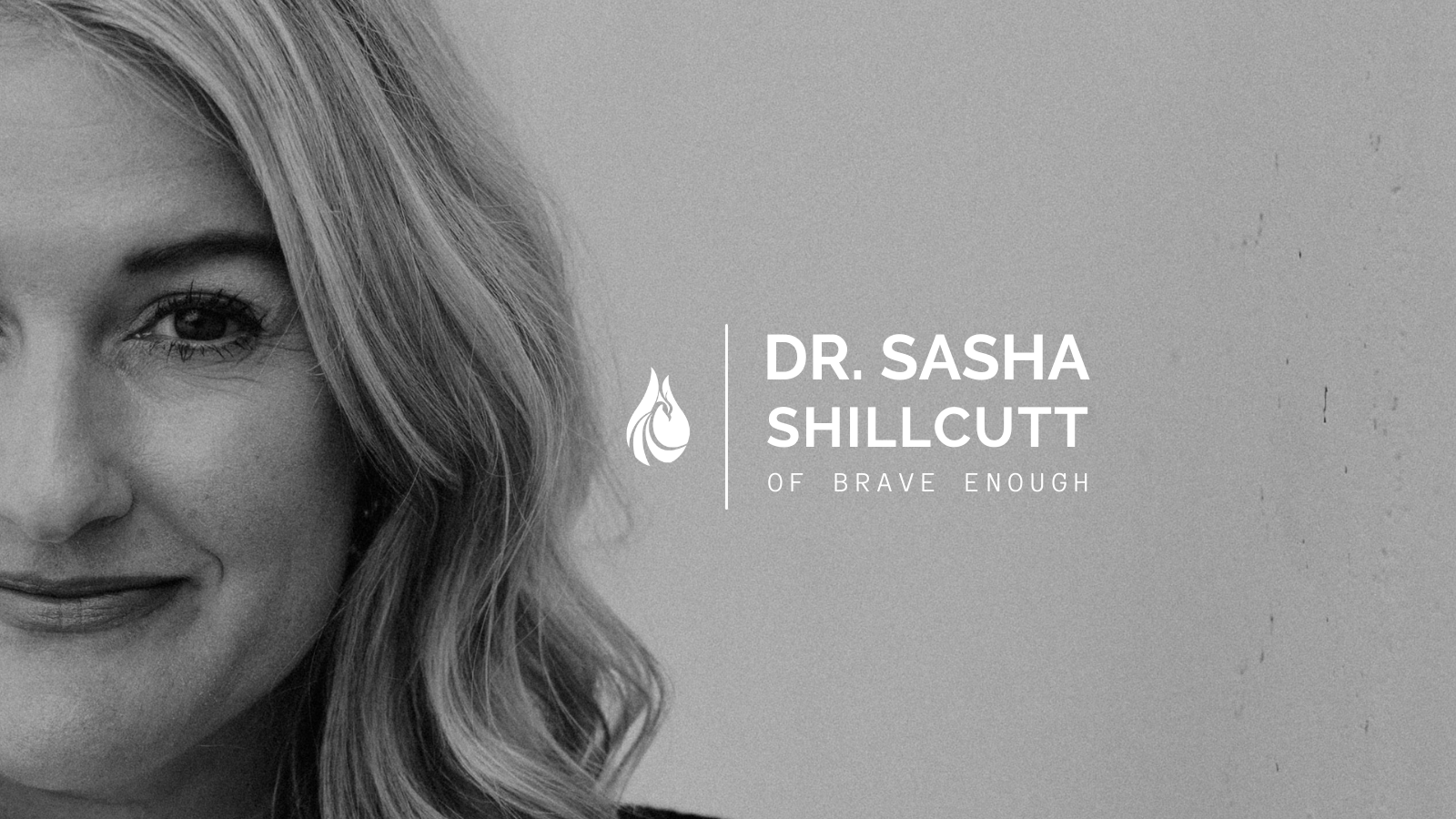Mental Health Matters: 5 Caring Steps Every Working Woman Should Take
May 12, 2023
Ladies, let's talk about the elephant in the room: the pressure to keep up with the fast-paced working world while balancing a million responsibilities.
It's no secret that being a woman is tough, but one thing that often gets swept under the rug is our mental health. In the hustle and bustle, it's easy to forget that taking care of ourselves should be a top priority. And we're not just talking about bubble baths and face masks, but real, intentional steps to ensure our well-being is in check.
Sister, No Pressure
Trying to manage control of work, family, friends, and everything in between can feel like a never-ending juggling act. It's no wonder we often find ourselves feeling overwhelmed and stressed. And let's face it, our mental health can take a hit.
We can't let it get to that point. We need to be proactive and take action before we reach a breaking point. And let's not forget the added pressure of society's expectations. We're expected to be perfect in every aspect of our lives - from our appearance to our relationships to our career and success. It's no wonder we feel inadequate and anxious at times.
But here's the thing: taking care of our mental health is not a luxury or an indulgence. It's an absolute necessity. When we prioritize our well-being, we're better equipped to handle whatever comes our way - and we're happier, more productive, and better in our relationships. When we commit ourselves to putting our mental health first, the positive impact it has on our lives will unfold naturally.

Why Working Women Should Care for Her Mental Health?
As a woman physician, I believe that mental health is just as important as physical health. The two are closely interconnected - poor mental health can bring harm to your physical health, and vice versa. That's why I'm passionate about helping working women care for their mental health and well-being.
Working women face unique challenges that can impact their mental health, including long hours, demanding workloads, and limited time for self-care. These challenges can lead to stress, anxiety, and burnout - all of which can have a significant impact on our overall quality of life. Moreover, studies have shown that women are more likely than men to experience mental health concerns such as depression and anxiety, making it even more important for us to prioritize our mental well-being.
Caring for our mental health is not only essential for our well-being but can also benefit our professional and personal lives. When we prioritize our mental health, we are better equipped to manage stress, handle challenging situations, and maintain positive relationships with those around us. We become more productive, creative, and effective in our work, and we can lead happier and more fulfilling lives.
5 Steps YOU Can Take
Working women face unique challenges that can impact our mental well-being, such as managing competing demands of work and home life, dealing with sexism and discrimination, and navigating office politics. These stressors can lead to burnout, anxiety, depression, and other mental health concerns.
I don’t want that for you, and I know you don’t want that too. So here are 5 essential steps that every working woman can take to improve their mental well-being. Whether you're a busy professional juggling multiple responsibilities, a mother trying to balance work and family life, or a young woman starting your career, these steps can help you.
Step 1: Recognize the Importance of Mental Health
The first step to caring for your mental health as a working woman is to recognize its importance. Mental health encompasses a state of emotional, psychological, and social well-being. Good mental health allows us to cope with the challenges of daily life, build and maintain positive relationships, and achieve our goals and aspirations.

When we neglect our mental health, it can lead to a wide range of problems that can significantly impact our personal and professional lives. For instance, poor mental health can result in symptoms such as low mood, anxiety, and irritability, which can make it difficult to concentrate and be productive at work. It can also affect our ability to communicate and collaborate effectively with our colleagues and managers, which can result in strained relationships and even conflict. When mental health issues are left unaddressed, they can escalate and lead to more serious conditions such as depression, anxiety disorders, and burnout. These conditions can have a significant impact on our overall quality of life, including our physical health, relationships, and work performance.
Therefore, as a working woman, it is crucial to recognize the importance of mental health and take proactive steps to maintain it. Taking care of your mental health can involve simple steps such as taking regular breaks throughout the day, practicing mindfulness and meditation, engaging in physical exercise, and maintaining a healthy diet. These practices can help to reduce stress and promote emotional well-being, which can have a positive impact on your overall health and work performance.
Recognizing the importance of mental health is crucial to understanding our true selves, and this understanding can be deepened through the Enneagram. At the core of the Enneagram is the belief that we all have a unique essence, or "true self," that can be obscured by the various masks and defense mechanisms we develop over time. However, when we prioritize our mental health and begin to peel back these layers, we can start to see glimpses of our true selves. By recognizing our patterns of thought and behavior, we can better understand our motivations and fears, and ultimately, become more authentic and self-aware.
Know more about yourself through Enneagram. Sign up for my Enneagram course, Understanding You: Move from Conflict to Confidence. The Enneagram can be a powerful tool in this process, as it provides a framework for understanding your personality type and the patterns that drive your behavior and how helpful this will be in recognizing how important your mental health is. Save your spot here.

Do you have questions about the Enneagram and how it can benefit you? Before diving into the course, join me for a free webinar, "What is the Enneagram and How Can It Help Me?". This informative webinar is designed to answer all your Enneagram queries and show you how this powerful tool can provide you with a holistic approach to taking care of your mental health. Don't miss out, reserve your spot today! Click here to sign up for the webinar.
Step 2: Identify Your Stressors
The second step to caring for your mental health is to identify your stressors. Stress is a natural part of life, but it can become overwhelming if not managed properly. As a working woman, managing stress is essential for maintaining good mental health. Stress is also a natural response to challenging situations, but when it becomes chronic, it can have harmful effects on both our physical and mental well-being.
As mentioned in the previous step, recognizing the importance of mental health is the first step toward maintaining good emotional and psychological well-being. The second step involves identifying the sources of stress in your life. Stress can arise from a variety of sources such as work, family, finances, relationships, and health. As working women, we may experience additional stressors such as juggling work and home responsibilities, navigating workplace dynamics, and dealing with discrimination or bias.
To manage stress effectively, it is important to identify the specific sources. This involves paying attention to our thoughts, emotions, and physical sensations when we are under stress. Once we have identified our stressors, the next step is to develop effective coping strategies. This may involve learning time management techniques to prioritize tasks and reduce the sense of overwhelm, practicing relaxation exercises such as deep breathing or meditation to reduce tension, or seeking support from friends and families.
It is important to remember that what works for one person may not work for another, and it may take some trial and error to find the strategies that work best for you. Experiment with different approaches until you find a combination of strategies that work well for you. Additionally, it is important to practice self-compassion and not be too hard on yourself if you experience stress or have difficulty managing it. Remember that stress is a natural part of life, and it is okay to ask for help or take a break when we need it.
Are you feeling burned out and in need of guidance on how to manage stressors in your life? Check out this video on my YouTube Channel where I talk about burnout and the FIRST step you can take to overcome it. Whether you're navigating a busy work schedule or simply trying to find more joy and fulfillment in your daily life, these resources are designed to support and empower you on your journey toward greater well-being.

Step 3: Practice Self-Care
Let’s talk about self-care - a term that is often thrown around but not always fully understood. It is so easy to get caught up in our daily responsibilities and put our own needs last on the list, but neglecting self-care can take a toll on our mental health and well-being. That is why it is important to prioritize activities that promote physical, emotional, and mental wellness.
Self-care is not just about indulging in luxurious bubble baths or spa days (although those can be great too). It is about setting healthy boundaries, managing our time effectively, and engaging in activities that promote personal growth and fulfillment. By carving out time for ourselves and engaging in activities that bring us joy and relaxation, we can prevent burnout and improve our overall mental health.
Of course, self-care looks different for everyone, and it's important to find activities that work best for you. Whether it is taking a yoga class, reading a book, or spending time in nature, prioritize activities that help you feel more centered and grounded. Remember, self-care is not selfish - it is an essential part of maintaining good mental health and well-being. So, make sure to put yourself first and create space for self-care in your daily routine.
Looking for the ultimate self-care experience? The Brave Enough Retreat for Women Physicians is here to help. Our retreat is designed to provide working women with a supportive and nurturing environment where they can focus on their well-being and personal growth. Join me this June for a transformative experience that includes self-care practices, mindfulness activities, and opportunities for connection and reflection with other like-minded individuals. Sign up here.

If you can't make it in June, don't worry. The Brave Enough 2023 Fall Retreat is also just around the corner, and you can still be a part of this life-changing experience. Don't miss out on this opportunity to prioritize your self-care and connect with like-minded women. Save your spot here.
Step 4: Connect with Others
As social creatures, we crave connection and interaction with others. However, in today's fast-paced society, it can be easy to lose touch with those around us. As working women, we may find ourselves caught up in the demands of work and personal life, leaving little time for social interaction. However, connecting with others is an essential step toward maintaining good mental health and overall well-being.
Social isolation can have negative effects on mental health, leading to feelings of loneliness, anxiety, and depression. On the other hand, connecting with others can lead to increased happiness, reduced stress, and improved overall well-being. Therefore, it is crucial to make an effort to connect with others, whether it is with friends, family, or colleagues.
Connecting with others can take many forms, from a simple phone call to a coffee date with a friend. It may also involve joining a club or group that shares your interests or volunteering for a cause that you care about. The key is to find opportunities to interact with others and build meaningful relationships. Connecting with others can provide a support system during times of stress or difficulty. By having someone to talk to and lean on, we can better manage the challenges that life throws our way.
Are you searching for a community of strong and like-minded women who understand your journey toward better mental health? Join me at the Brave Enough Women's CME Conference 2023, where you can connect with other women who share your passion for personal growth and well-being. This conference offers a unique opportunity to deepen your connections with other women and gain valuable insights from experts in mental health and wellness. Don't miss this chance to surround yourself with a supportive community, sign up here. We have a limited number of scholarship opportunities for you to attend. To apply for a scholarship, click here. The deadline for scholarship applications is May 15.

Step 5: Seek Help When You Need It
Caring for our mental health is an ongoing process that requires effort and attention. Despite our best efforts, there may be times when we need additional support. Seeking help from a professional can be a beneficial step in managing mental health concerns. These professionals can provide a safe and supportive environment to talk about your concerns and challenges. They can offer guidance and support in developing coping strategies and tools to manage stress, anxiety, and other mental health concerns.
It is important to recognize that seeking help is not a sign of weakness, but rather a proactive step towards improving our mental health and well-being. Many people hesitate to seek professional help due to fear of stigma or shame, but it is important to remember that seeking help is a brave and bold step to go through.
Looking for guidance and support to help you achieve your goals? Book a coaching session with me and together we'll explore your unique strengths and challenges to help you reach your full potential. Whether you're striving to achieve personal growth, career success, or simply looking to improve your overall well-being, I am here to provide the guidance and accountability you need to succeed.
I am Woman, I am Fearless
As working women, we are strong, resilient, and capable of overcoming any obstacle that comes our way. However, sometimes we forget that we are also vulnerable and in need of care, especially when it comes to our mental health. It takes courage to face our fears and address our mental health concerns, but we are more than capable of doing so. We have the strength within us to acknowledge our struggles and seek help when we need it. By taking care of our mental health, we not only improve our well-being but also set an example for other women and people around us.
Remember, being fearless does not mean we never feel afraid or struggle with our mental health. It means we dare to face those challenges head-on and take action toward our healing and growth. We are today’s working women, capable of living a fulfilling and joyful life, and it starts with prioritizing our mental health.
Feeling stretched thin? I can show you 10 ways to get back TWO HOURS in your week!
DOWNLOAD MY FREE TOOLKIT AND GET BACK HOURS OF TIME IN YOUR WEEK.
YES, YOU CAN.
We hate SPAM. We will never sell your information, for any reason.


